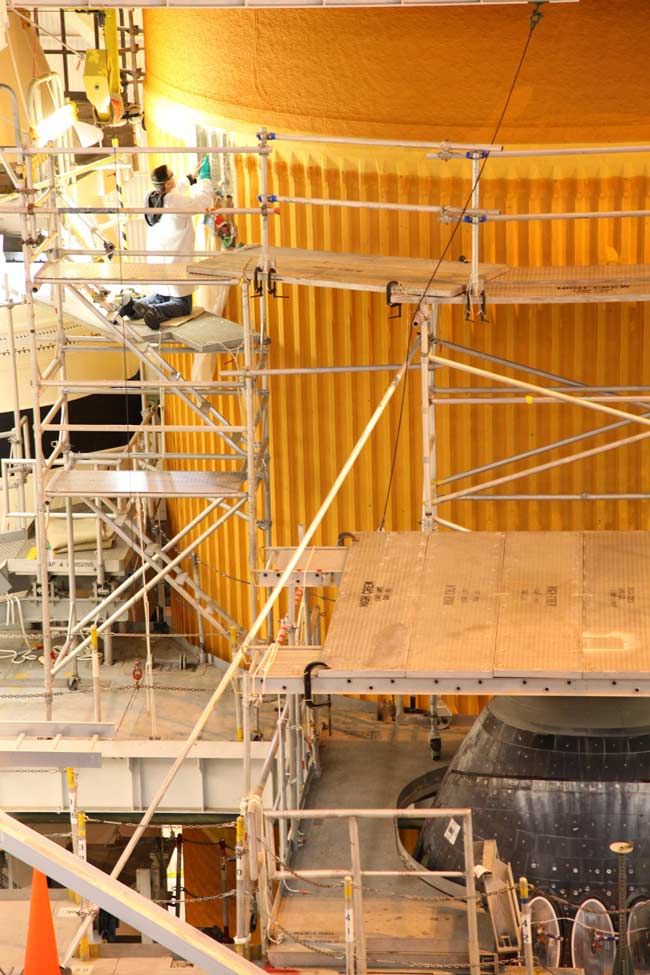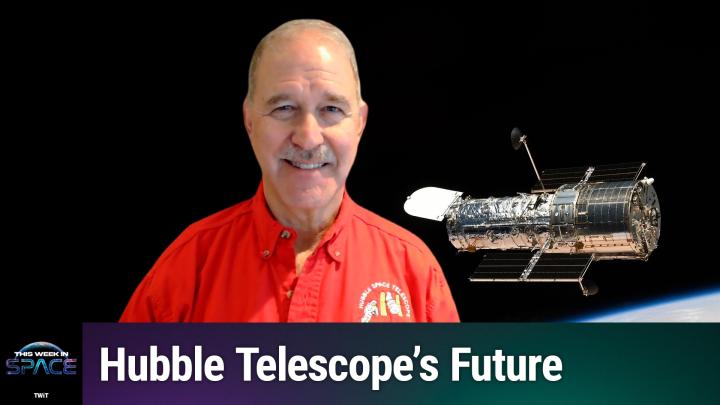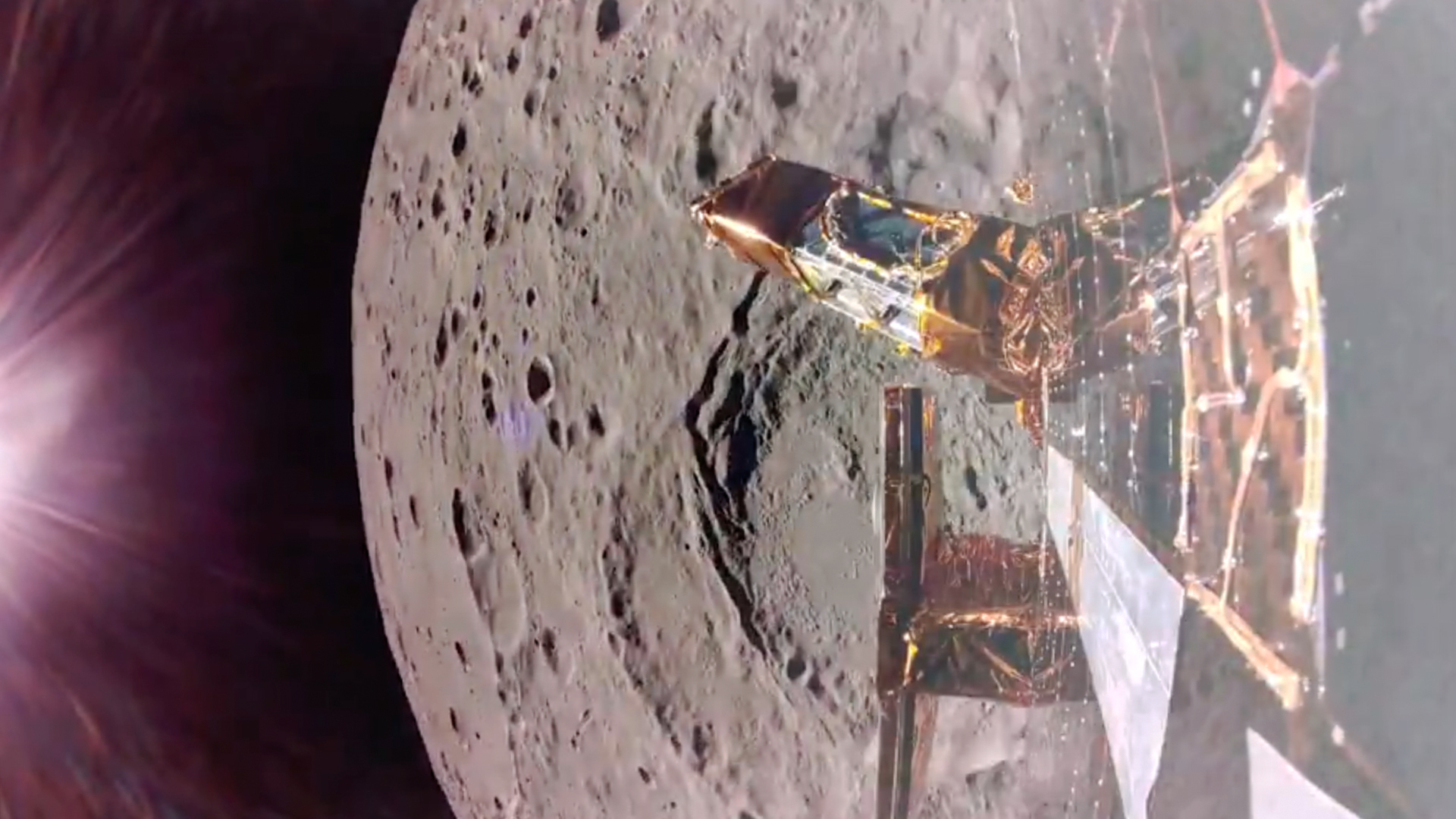NASA Delays Launch of Space Shuttle Discovery Again for More Repairs

This story was updated at 9:57 p.m. ET.
NASA has delayed the launch of space shuttle Discovery's final flight yet again in order to allow more time repair the spacecraft's beleaguered fuel tank, the space agency announced late Thursday (Jan. 6).
The decision came after a meeting of top space shuttle program managers earlier in the day to evaluate the progress of Discovery's fuel tank repairs. From their analysis, the officials opted to push the next launch attempt further back from the previously scheduled Feb. 3 liftoff.
"There is no official target launch date right now," NASA spokesman Kyle Herring, of the Johnson Space Center in Houston, told SPACE.com. "I would only characterize as late February as the next opportunity."
NASA officials said that with the continuing repairs under way on the external tank, and the potential for additional work still to be defined, it was clear that Discovery would not be ready for flight in time for the early February window, which runs from Feb. 3 to Feb. 10. [Infographic: NASA's Space Shuttles: Top to Bottom]
Shuttle officials want to be sure Discovery's 15-story external tank is structurally sound for launch and won't pose a debris risk to the shuttle during liftoff, Herring said.
Get the Space.com Newsletter
Breaking space news, the latest updates on rocket launches, skywatching events and more!
Preventing damage from fuel tank foam insulation shaken loose during launch has been a chief concern for NASA's shuttle flights since 2003, when debris hit the shuttle Columbia's left wing during liftoff and ultimately led the loss of the spacecraft and its seven astronaut crew as they were re-entering the atmosphere ahead of landing.
More shuttle delays
Discovery's final mission – a delivery run to the International Space Station – has been delayed since early November due to external fuel tank cracks and other issues.
New launch targets for Discovery's STS-133 mission, and subsequently for the shuttle Endeavour's STS-134 mission, will be discussed next Thursday (Jan. 13) at the weekly meeting for top shuttle program managers.
According to some news reports, the next available launch window extends from Feb. 27 to March 6. But Herring said the late February launch window is still under review.
One wrinkle in launch planning for Discovery is traffic bound for the International Space Station, where the shuttle is also headed. Cargo ships from Japan, Europe and Russia are all due to visit the station over the next few months, so Discovery's last mission will have to be wedged somewhere in between.
"All of that is going to happen in the next several weeks, and that has to be factored in," Herring said on the station's busy space traffic schedule.
Fuel tank repairs on tap
Technicians at the Kennedy Space Center in Cape Canaveral, Fla. are making modifications to support beams, called stringers, around the midsection of the orbiter's fuel tank. After Discovery's delayed launch try on Nov. 5, shuttle engineers discovered cracks on a few of these beams, which have since been repaired.
To increase the structural support of the beams, engineers are applying extra pieces of metal reinforcements to 32 of the 108 stringers in the areas that experience the most stress during the shuttle's launch and ascent into orbit.
Technicians are expected to finish these preliminary modifications by the end of next week, NASA officials said. In today's meeting, however, program managers made the decision to expand their efforts, and reinforce 32 additional stringers on the tank (bringing the total to 64).
Engineers are also in the midst of fixing four small cracks that were found last week on the tops of three of the tank's metal support ribs.
These new shuttle fuel tank cracks are located on the back of the tank's midsection, on the side opposite from the shuttle. The repairs on those beams began Monday (Jan. 3), and are expected to be completed this week.
Additional scans that use radiation to peer beneath the tank's layer of foam insulation will also be made while the vehicle remains in the enormous Vehicle Assembly Building.
Data from the scans will be sent to various other NASA centers for analysis.
"Senior NASA managers and Space Shuttle Program managers will meet Monday to review the progress to date and the forward plan," NASA officials said in a statement.
Last voyage of shuttle Discovery
Discovery's upcoming mission – its final voyage before being retired – will deliver cargo and supplies to the International Space Station. The targeted launch date was previously scheduled for no earlier than Feb. 3, with the window extending through Feb. 10.
Discovery's STS-133 mission has been delayed since early November due to concerns with the fuel tank and other issues. After a series of cracks were detected on the fuel tank's support beams, any attempt to launch was pushed to February to allow engineers enough time to thoroughly analyze and understand how the cracks developed.
NASA is retiring its space shuttle fleet this year to make way for a new space exploration plan aimed at sending astronauts to an asteroid by 2025 and, in a later expedition, to Mars.
The shuttle Endeavour is set to fly its final mission, also to the space station, in April. NASA has gotten permission to fly a third mission to the station in 2011, around June using the shuttle Atlantis, before retiring the fleet for good.
Join our Space Forums to keep talking space on the latest missions, night sky and more! And if you have a news tip, correction or comment, let us know at: community@space.com.

Denise Chow is a former Space.com staff writer who then worked as assistant managing editor at Live Science before moving to NBC News as a science reporter, where she focuses on general science and climate change. She spent two years with Space.com, writing about rocket launches and covering NASA's final three space shuttle missions, before joining the Live Science team in 2013. A Canadian transplant, Denise has a bachelor's degree from the University of Toronto, and a master's degree in journalism from New York University. At NBC News, Denise covers general science and climate change.









